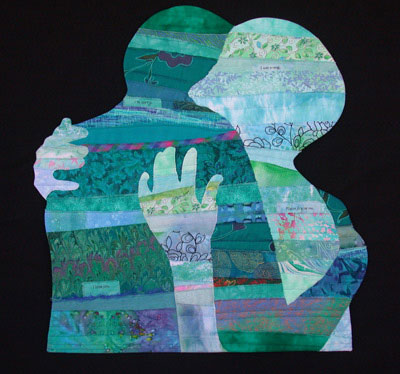The ten High Holy Days between Rosh Hashanah and Yom Kippur are called the Days of Awe. In a world where everything from a new song to a mismatched pair of socks are Awesome, I am surprised at the reminder that God deserves our awe. In these days, we return to the Old Testament God I was expecting to meet during this journey--the God of Judgment. (This is one of my original questions for this year, how to reconcile the God of the Old Testament and the Christ of the New Testament as one and the same. It is a question I continue to explore and don't expect to resolve.)
Last week on Rosh Hashanah, tradition says God opened three books. One contains the names of those who are totally wicked, one those who are perfectly righteous, and the third holds the vast majority of us who fall somewhere in between. During the ten days between Rosh Hashanah and Yom Kippur, everyone gets a chance to do as many good deeds as possible to secure a place in the Book of Life. People return to synagogue to confess their sins, they fast, give to charity, and reconcile with each other in an effort to find forgiveness and get penciled into the Book of Life for another year.
It all sounds exhausting. And it makes me very, very thankful that my name is already written in that book. No amount of sacrifice, fasting, confession, or service projects can get me in there any better than it already is--in BOLD LETTERS and indelible ink. And that's not because of anything I've done, but because I said "yes" to the once and for all sacrifice of Jesus.
That said, in the spirit of the Days of Awe, I've been thinking a lot about reconciliation. Last week I was at a ladies' retreat and we spent quite a bit of time listing names of people who fall in different categories--those you confide in, those who are close, but not quite as close, those who are out to get you, those who have disappointed you in some way.
I found myself dwelling on the disappointments. Several relationships came to mind that are not as deep or as close as they once were. The common thread through each of these that came to mind is that, through no fault on either side, the disappointment is probably mutual. Friendships fade, or are wrenched from us, and it leaves a wound and then a scar.
If I had a story of someone whose betrayal cut me, I'm not sure I would share it here. As much as I aim to be transparent, it seems so deeply personal, the dance of friendship. Even as I make purposeful steps to restore lost ties, I hold those conversations close. It reminds me of A.J. Jacobs in The Year of Living Biblically. He set out to spend a whole year obeying each of the commandments of the Bible in turn. When it came time for him to stone someone, he couldn't do it. He found himself walking around town, dropping pebbles at his own feet, and still feeling horrible about his judgmentalism, though no one else could see it.
Here is my stone of judgment. I notice things about people and then I categorize them. I haven't thought of it as gossip before, but maybe it is. "I was out with so-and-so...well, you know how she is. Everything to her is black and white." Or, "He's more likely to visit than to pitch in with cleanup" (a modern twist on the Mary/Martha story). There's a fine line between sharing for understanding and sharing with an edge of superiority. I tend to call it discernment because it sounds wise and astute, but maybe it's just mean. I don't usually intend it that way, but I want to listen to myself to make sure it doesn't come across that way. Hold me to it?
This week's Torah portion: Deuteronomy 31:1-30
*Art quilt "Reconciliation" by Ellen Linder.

No comments:
Post a Comment